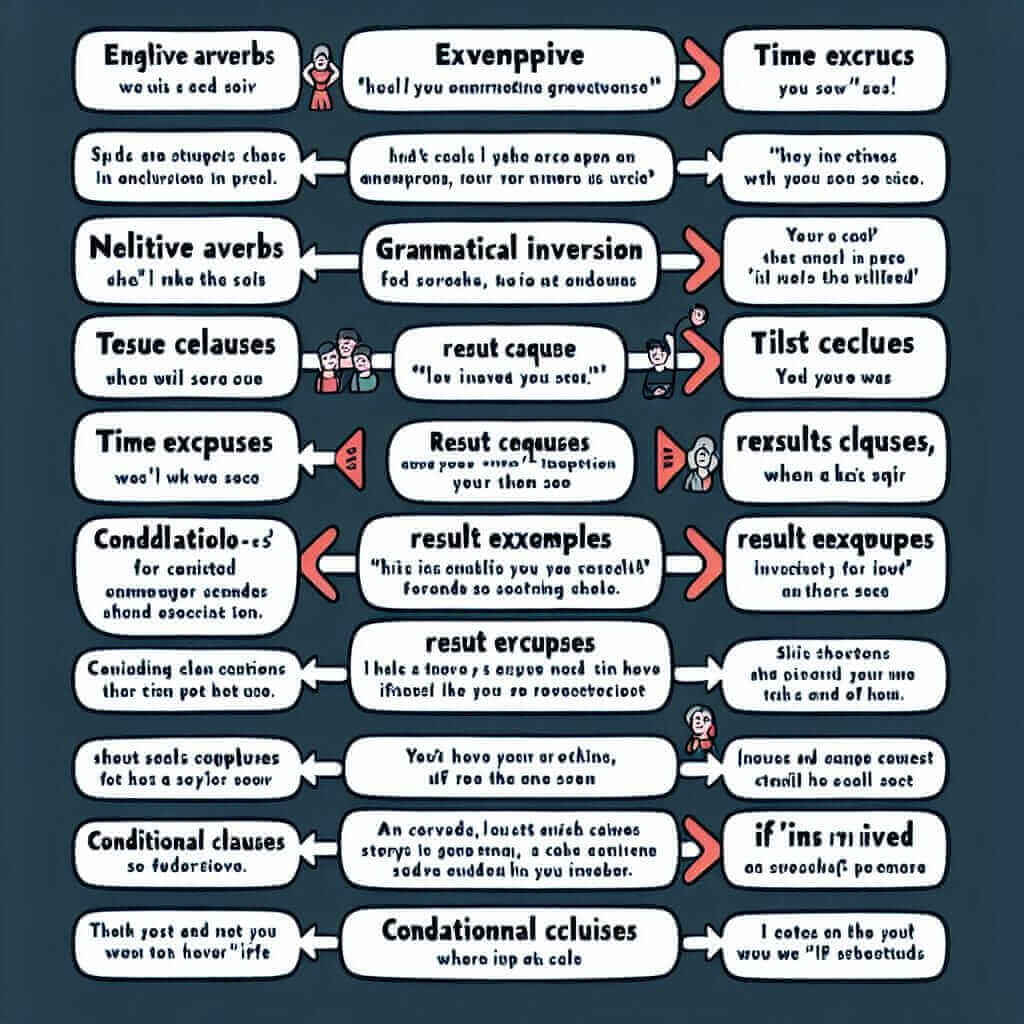“On no terms will I negotiate!” Have you ever encountered such a sentence? This emphatic and slightly dramatic statement showcases a grammatical structure known as inversion, often used to add emphasis and sophistication to your writing and speaking. Understanding and using inversion effectively can boost your IELTS score, particularly in writing tasks and speaking assessments where a range of grammatical structures is crucial.
Deconstructing “On No Terms”
“On no terms” signifies a strong refusal, implying “absolutely not” or “under no circumstances.” Placing this phrase at the beginning of a sentence triggers an inversion in the following subject-verb order.
For instance:
Standard: I will not negotiate under any circumstances.
Inversion: On no terms will I negotiate.
In the inverted sentence, notice how the auxiliary verb “will” comes before the subject “I.” This reversed order emphasizes the refusal and makes the statement more impactful.
Understanding Inversion in IELTS
Inversion, while not overly common, appears in various contexts and demonstrates a higher level of grammatical competence, which IELTS examiners appreciate. Correct usage showcases your ability to manipulate sentence structure for stylistic effect, contributing to a higher score, especially in grammatical range and accuracy.
When Does Inversion Occur?
Inversion typically occurs when a sentence begins with:
- Negative or restrictive adverbs: Never, rarely, seldom, hardly, scarcely, no sooner, not only, under no circumstances, on no account, etc.
- “Only” combined with time expressions or prepositional phrases: Only then, only after, only by, etc.
- “So” and “such” in result clauses: So impressive was the performance, such was the impact…
- Conditional clauses with inversion (omitting “if”): Were I in your position, Had I known earlier…
Inversion Formula and Application
While the specific formula varies depending on the context, the basic principle involves inverting the subject-verb order, often introducing an auxiliary verb.
| Context | Standard Structure | Inverted Structure |
|---|---|---|
| Negative Adverb | I had never seen such beauty. | Never had I seen such beauty. |
| “Only” + Time | I realized my mistake only after he left. | Only after he left did I realize my mistake. |
| “So” + Result | The music was so loud that I couldn’t hear myself think. | So loud was the music that I couldn’t hear myself think. |
| Conditional (omitting “if”) | If I were you, I would accept the offer. | Were I you, I would accept the offer. |

Applying Inversion in IELTS Writing
Using inversion effectively in your IELTS writing can significantly enhance your score. Consider these examples:
-
Task 2: Discuss the importance of environmental protection.
Standard: We have never faced such a critical environmental situation.
Inversion: Never before have we faced such a critical environmental situation. -
Task 1: Describe a time you witnessed a natural disaster.
Standard: I only understood the gravity of the situation after seeing the devastation.
Inversion: Only after seeing the devastation did I understand the gravity of the situation.
Speaking with Inversion
Incorporating inversion in your IELTS speaking demonstrates fluency and a command of grammar.
-
Part 3: Discussing technological advancements
Standard: Technology has never advanced at such a rapid pace.
Inversion: Never before has technology advanced at such a rapid pace. -
Part 2: Describing a memorable journey
Standard: I had only truly experienced the beauty of the mountains after hiking for hours.
Inversion: Only after hiking for hours did I truly experience the beauty of the mountains.
Common Pitfalls and How to Avoid Them
- Overuse: While effective, using inversion excessively can sound unnatural and forced. Employ it selectively for emphasis.
- Incorrect Structure: Pay close attention to the auxiliary verb and subject-verb order after inversion.
- Inappropriate Context: Inversion is generally more formal, so avoid using it in casual contexts.
Conclusion
Mastering inversion can significantly enhance your IELTS performance, demonstrating a sophisticated command of English grammar. Remember to practice using inversion in various contexts, but use it judiciously for maximum impact. Good luck with your IELTS preparation!